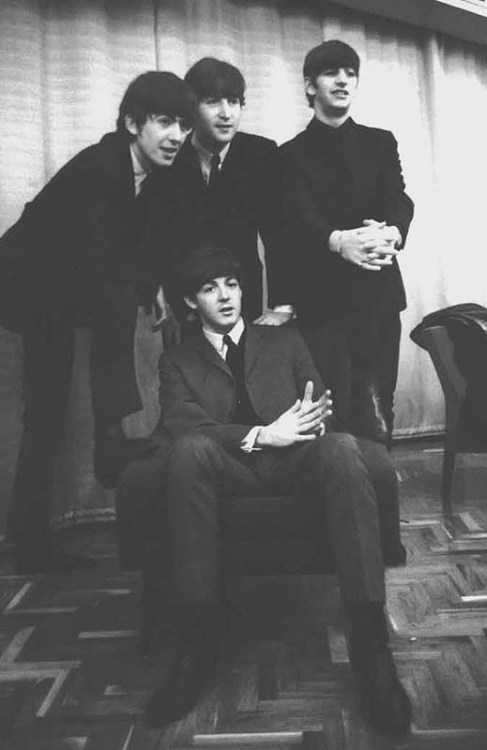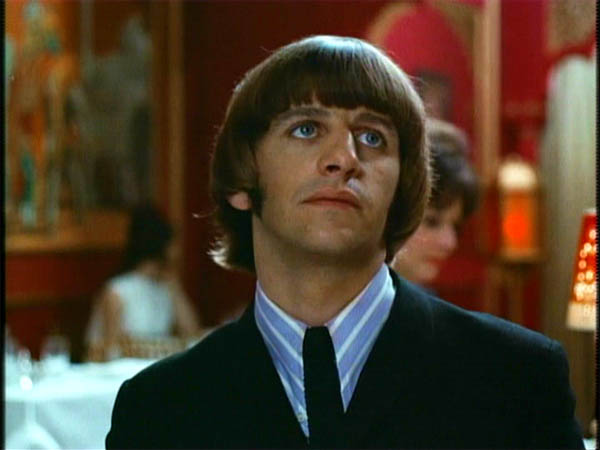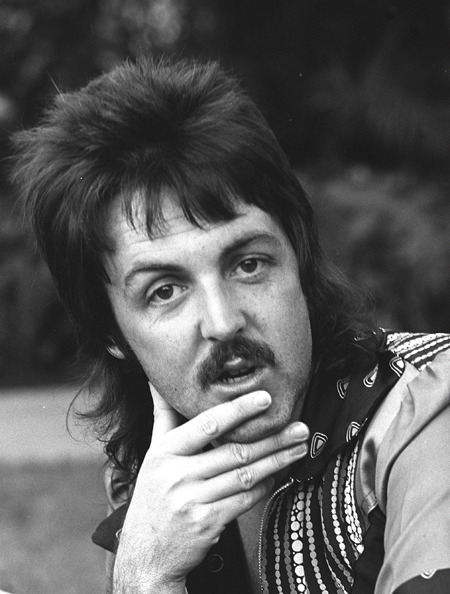Tuesday, June 22, 2010
Yeah, I Need Love
Never Forget ...

Saturday, June 19, 2010
A Message from the Master and Commander
McBoaty wanted me to tell you "good morning," and to remind you that it's usually best if you just keep to the lake. As a follow-up word of wisdom, McBoaty would like to add that you will need to have a berth if you want to get to sea. Oh, and Uncle Albert, if you're out there reading this, McBoaty wanted you to know that we are still sorry, especially about that nasty incident with the kettle.
Friday, June 18, 2010
Indicate Precisely

Happy Birthday, Sir Paul McCartney

Magical History Tour: June 18, 1942
Friday, June 11, 2010
The Beatles, "Musicologically": New York Times, Feb. 10, 1964
Thursday, June 10, 2010
May I Interest You in an Earworm?
Just try to get this out of your head after listening to it.
PS: Ringo's facial expression at approximately 1:43 into the song basically sums up my feelings about this song.
PPS: Ok, not really. The song gently hints at the story of The Beatles and their rise to fame, so it's somewhat endearing to me. Plus, it's a catchy tune, by which I mean that you will never, ever get it dislodged from your head, no matter how hard you beg the gods for mercy. Enjoy!
Update: Paul's added commentary makes the tune even more tolerable.
Friday, June 4, 2010
Oh, Look, A Box of Beatles!
Alan Clayson is the only author I am aware of who has attempted to write a biography of Ringo Starr, and from what I have read so far of his work, he's made a very good job of it (considering that he didn't get to work directly with Ringo, who, for whatever reason, won't consent to publish an "official" biography). It's been a very different sort of experience for me, since, like most Beatle-related bio-work, it begins by covering the pre-Mania years, but unlike most Beatle bios, it does so from Ringo's perspective. Remember, of course, that Ringo didn't join the band until they were well on their way to having a recording contract; in other words, where I had been used to reading stories of famous meetings at Woolton fêtes, jam sessions on double-decker buses, Quarry Men, Silver Beetles, and Hamburg trips, I found myself reading about Ringo's (mostly hospitalized) childhood, his start as a skiffle drummer, Rory Storm and the Hurricanes, and so on. This little biography (and by "little", I mean, "over 400 freaking pages") rounds out the history of The Beatles and completes the picture, and Clayson does a good job of incorporating actual quotes from Ringo wherever he can.
Fortunately for those of us who can't get enough of The Beatles in paperback, you can now purchase the Ringo biography as part of a four-pack set of biographies, each one focusing on the life of one of the Liverpool Lads. The volume on George's life is also 400 pages, and promises to be a more "in-depth" story than George's own sparse and scattered recollections in I Me Mine (a book which makes up for its paucity of information by being written in George's own inimitable style). I'm looking forward to cracking this one open after I've finished reading Ringo.
The McCartney and Lennon volumes are much slimmer than the Harrison and Starr volumes, but I can only assume that this is because so much has already been written about the Len-Mac duo by other authors, and so perhaps Clayson decided to give their lives a more cursory treatment in favor of focusing on George and Ringo.
It's a handsome set of books, that much is certain. You might want to add it to your bookshelf sooner than later.
